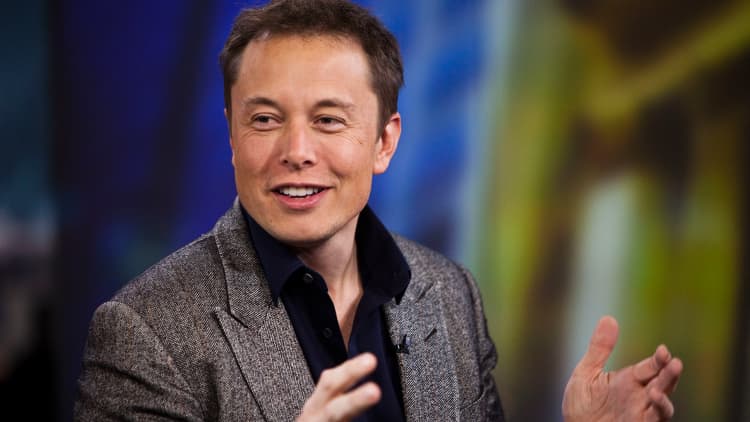If we stay on earth forever, "there will be some eventual extinction event," says Elon Musk in an article published in academic journal New Space.
In it, Musk says the alternative to this doomsday is for humans to become a multi-planetary species. He says Mars is the place to do it.
Venus is a "hot acid bath," says Musk in the article, which summarizes a speech he gave in Sept. of 2016. Mercury is too close to the sun. The moon is too small, has no atmosphere and not as "resource-rich."
Speaking like the entrepreneur he is, Musk says, Mars is better-suited "to scale up" to be a self-sustaining civilization.
"[I]f we could warm Mars up," says Musk, which he believes is doable, "we would once again have a thick atmosphere and liquid oceans." Mars also has enough sunlight and an atmosphere in which, with some tweaking, it would be possible to grow plants.

Musk also says, "It would be quite fun to be on Mars because you would have gravity that is about 37 percent of that of Earth, so you would be able to lift heavy things and bound around."
The key, says Musk is his company SpaceX creating systems that make the move to Mars affordable – comparable to the median house price in the U.S. is the goal. Currently, Musk estimates trips to Mars would cost about $140,000 per ton (taking into account transporting things like luggage, food and life support). But he believes the cost could potentially drop to below $100,000 a ton.
Musk sees a future where people would save up for a move to Mars like they do a home. "People could also get sponsorship. It gets to the point where almost anyone, if they saved up and this was their goal, could buy a ticket and move to Mars — and given that Mars would have a labor shortage for a long time, jobs would not be in short supply," he says.
Ultimately, says Musk, funding this will be a joint effort between private and government resources. "As we show that this is possible and that this dream is real—it is not just a dream, it is something that can be made real—the support will snowball over time," says Musk.
"I should also add that the main reason I am personally accumulating assets is in order to fund this," says Musk of his wealth. "I really do not have any other motivation for personally accumulating assets except to be able to make the biggest contribution I can to making life multi-planetary."
Just 15 years ago, "SpaceX basically consisted of carpet and a mariachi band," says Musk. "We were basically clueless." Now, he believes SpaceX will have a spaceship by about 2020, with which it can start doing suborbital flights.
That would also enable the transport of cargo "to anywhere on Earth in 45 minutes at the most," he says. "Most places on Earth would be 20–25 minutes away. If we had a floating platform off the coast of New York, 20–30 miles out, you could go from New York to Tokyo in 25 minutes and across the Atlantic in 10 minutes," he says.
"If things go super-well, it might be in the 10-year time frame," to Mars, says Musk. "But I do not want to say that is when it will occur. There is a huge amount of risk. It is going to cost a lot. There is a good chance we will not succeed, but we are going to do our best and try to make as much progress as possible."
Don't miss:


